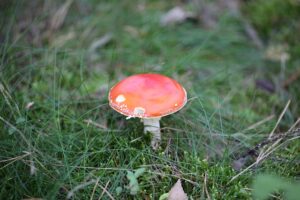Magic mushrooms, scientifically known as psilocybin mushrooms, have captivated human curiosity for centuries due to their hallucinogenic properties. While often associated with recreational use and counterculture movements, recent research has shed light on their potential therapeutic benefits, particularly in the realm of mental health. In this article, we will delve into the world of magic mushrooms and their exploration as a tool for improving mental well-being.
The Magic of Psilocybin

At the heart of magic mushrooms’ mystique lies psilocybin, a naturally occurring compound that affects the brain’s serotonin receptors. When ingested, psilocybin is metabolized into psilocin, which leads to altered perceptions, vivid hallucinations, and a profound shift in consciousness. While these effects have been the focus of recreational use, researchers are increasingly intrigued by psilocybin’s impact on mental health.
The Psychedelic Renaissance
In recent years, there has been a resurgence of interest in psychedelics, including magic mushrooms, for therapeutic purposes. This renaissance is driven by a growing body of scientific evidence suggesting that psilocybin may hold promise in treating various mental health conditions. Studies have explored its potential in addressing:
- Depression: Research indicates that a single dose of psilocybin can induce long-lasting reductions in depressive symptoms, offering hope to those struggling with treatment-resistant depression.
- Anxiety: Preliminary studies have shown that psilocybin may alleviate anxiety related to terminal illness, opening up discussions about its use in palliative care.
- Post-Traumatic Stress Disorder (PTSD): Some research suggests that controlled psilocybin experiences can help individuals with PTSD process traumatic memories and reduce symptom severity.
- Addiction: Magic mushrooms may aid in substance use disorder treatment by promoting introspection, reducing cravings, and supporting long-term recovery.
- Existential Distress: Psilocybin-assisted therapy is being explored as a means to help individuals cope with existential and end-of-life anxieties.
Also Read: How Magic Mushrooms Help With Inflammation, Anxiety and Depression
The Role of Psychedelic-Assisted Therapy
It’s important to note that psilocybin is not a standalone treatment but is administered in a controlled, therapeutic setting under the guidance of trained professionals. Psychedelic-assisted therapy combines the use of psilocybin with psychotherapy to maximize its benefits.
During a session, individuals are encouraged to explore their thoughts, emotions, and past experiences while under the influence of psilocybin. This heightened state of consciousness can lead to profound insights and personal breakthroughs, which are then integrated into therapeutic work.
Safety and Ethical Considerations
The exploration of magic mushrooms for mental health is not without its challenges. Safety and ethical considerations are paramount. Ensuring a safe and supportive environment, proper dosing, and thorough psychological screening are essential to minimize risks.
Moreover, the legal status of psilocybin varies widely around the world, making it imperative for researchers and advocates to engage in legislative efforts to decriminalize or legalize its use for therapeutic purposes.
Conclusion
Magic mushrooms, once shrouded in stigma and controversy, are now emerging as a potential breakthrough in the field of mental health. The psychedelic renaissance has sparked a reevaluation of their therapeutic possibilities, offering hope to individuals grappling with conditions that were once considered resistant to treatment.
As research progresses and society’s perception evolves, the use of psilocybin for mental health may become increasingly integrated into mainstream medicine. However, it is crucial that this journey is guided by rigorous science, ethical considerations, and a commitment to the well-being of those seeking relief from the burdens of mental illness. Magic mushrooms may indeed hold the key to unlocking new horizons in mental health care, but the path forward must be treaded carefully and responsibly.

Hi! I’m Jacob Hawthorne, a passionate medical student dedicated to exploring the fascinating world of psychedelics, particularly magic mushrooms (commonly known as shrooms). With a deep interest in their therapeutic potential and profound effects on the human mind, I aim to provide accurate and evidence-based information about shrooms in the Canadian context.

